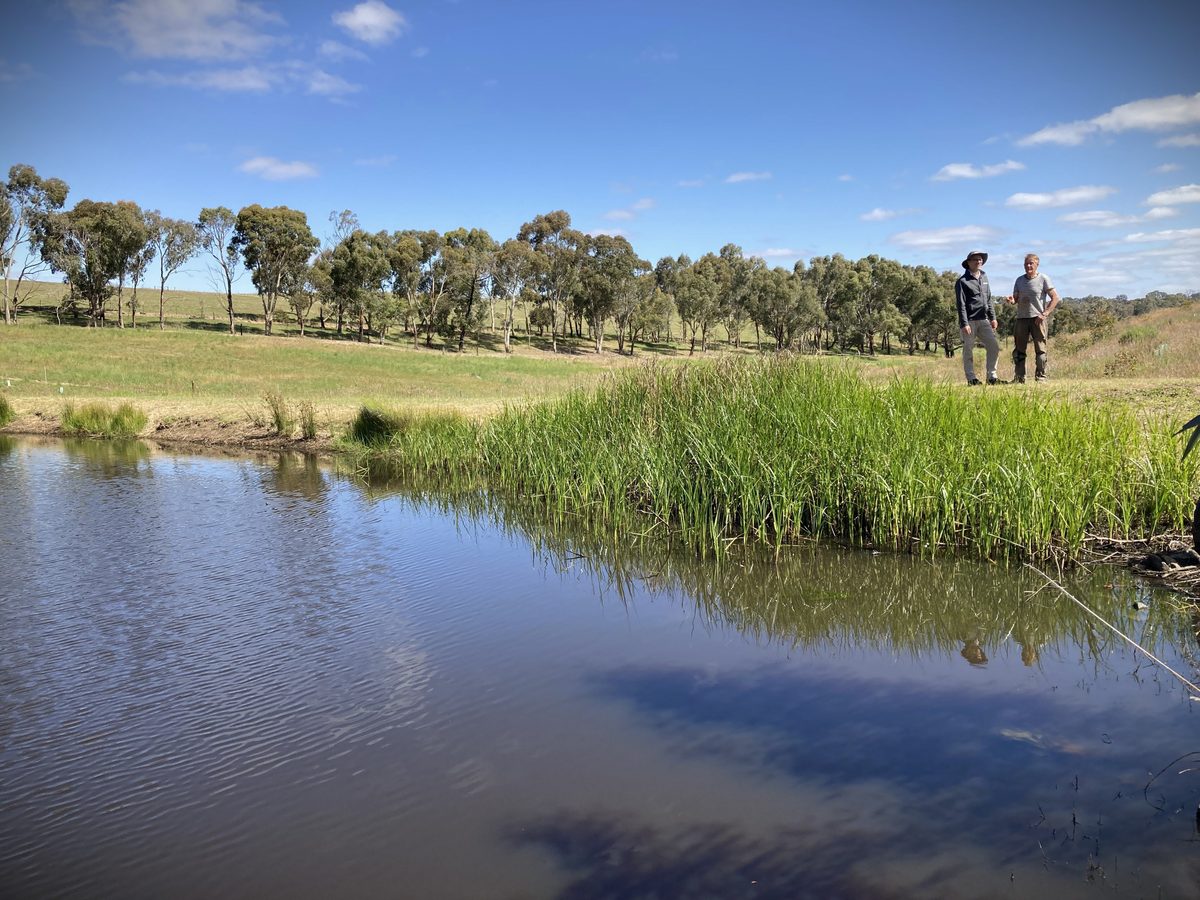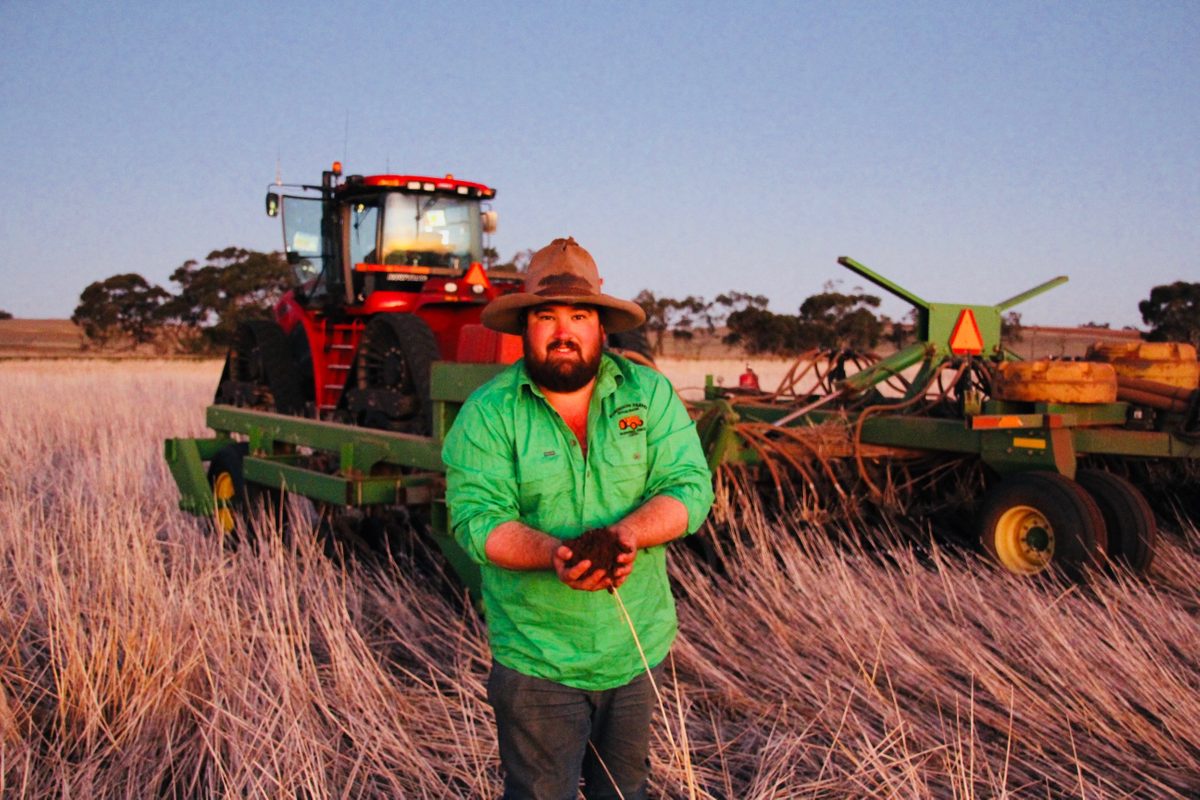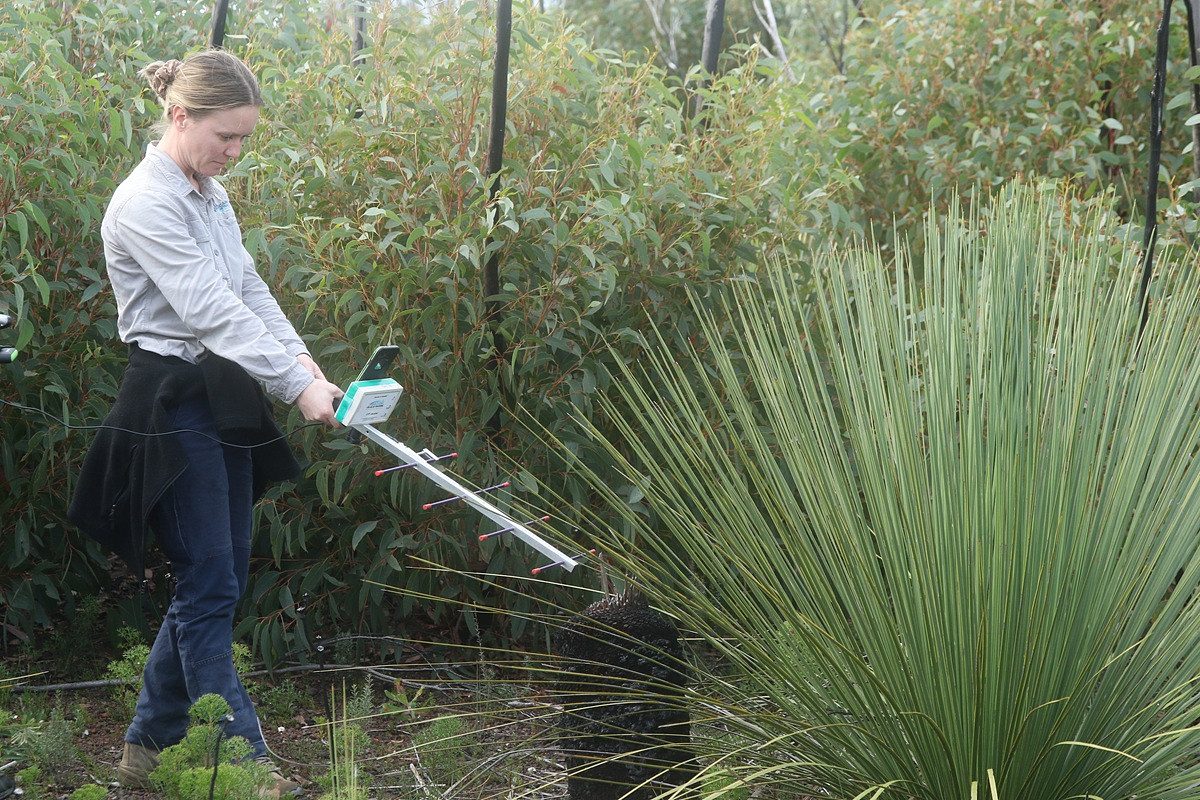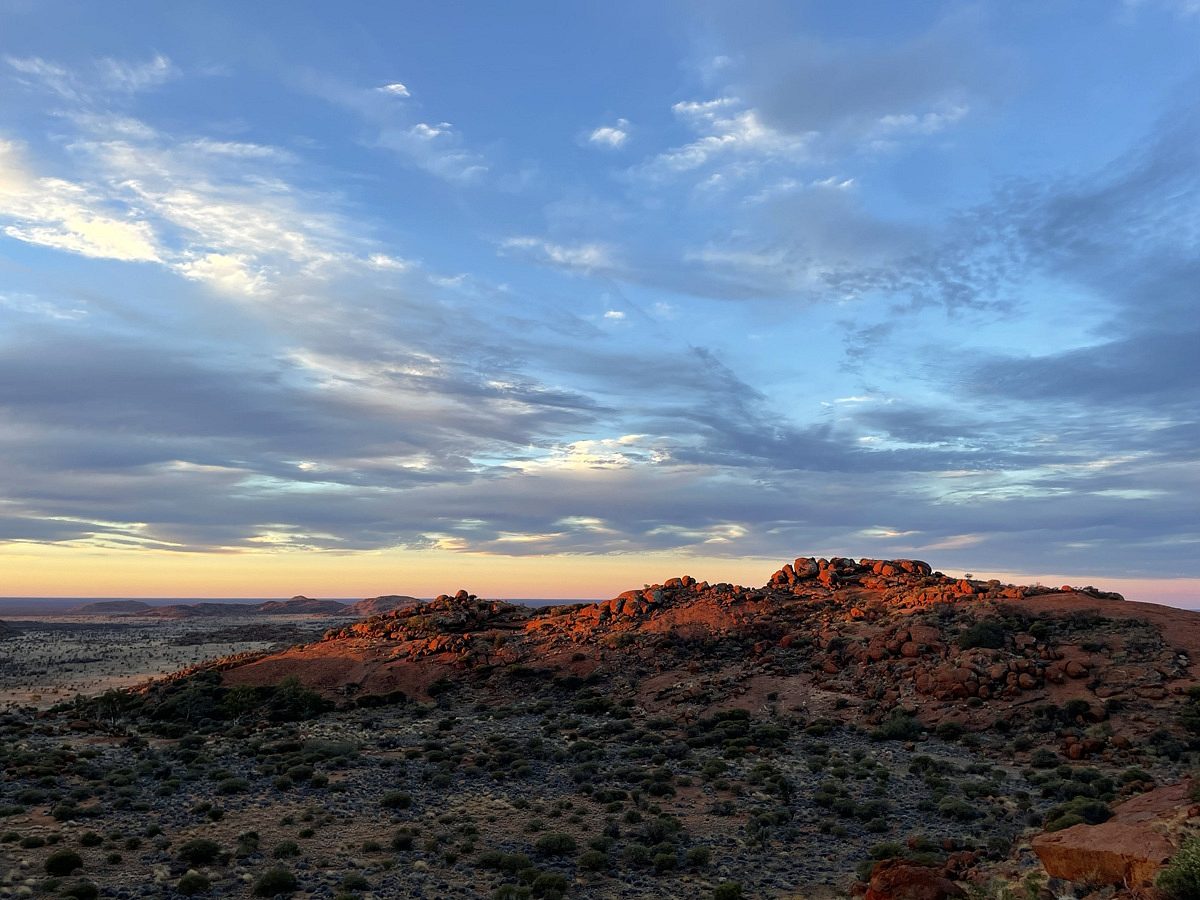Landscape Priorities Fund backs 14 projects to tackle SA’s big land and biodiversity issues
Fourteen priority projects have been announced in the latest round of Landscape Priorities Fund (LPF) funding.
The LPF is funded from landscape levies collected by Green Adelaide in the Adelaide metropolitan area and redistributed to South Australia’s regional landscape boards.
It enables investment in large, landscape scale projects that address regional and cross-regional priorities.
Boards partner with other organisations, groups and individuals to deliver projects that address environmental priorities such as landscape-scale restoration, supporting bushfire recovery, climate resilience and adaptation, sustainable agriculture, and threatened species and ecosystem recovery.
2023-24 funded projects
Optimising feral predator control to protect bird habitat across Yalata IPA
Alinytjara Wilurara Landscape Board
$450,000
Alinytjara Wilurara will partner with Yalata Anangu Aboriginal Corporation for feral predator management to protect eastern hooded plover and malleefowl habitat across the Yalata Indigenous Protected Area (IPA).
The site covers more than 450,000 hectares of coastal dunes, limestone cliffs, sand plains and mallee shrub lands.
The project has strong cultural significance. Yalata IPA Rangers will be involved in the planning and delivery of all project aspects, increasing their capacity to lead future activities that combine Traditional Ecological Knowledge and western science.

Controlling feral deer and goats on Eyre Peninsula
Eyre Peninsula Landscape Board
$275,000
Grazing pressure from feral herbivore species such as deer and goats is having a detrimental effect on natural habitats across Eyre Peninsula (EP). Aside from overgrazing and soil erosion, they are also a vector for disease and cause significant damage to agriculture. Declared for control under the Landscape South Australia Act 2019 both species are increasing in abundance across EP.
This project will reduce the impacts of pest herbivores across land tenures through:
- targeted control of deer populations using thermal assisted aerial control (TAAC)
- widespread control of goats using TAAC and traditional aerial control methods.
- follow-up compliance with landholders to ensure any ongoing pest herbivore control is maintained.

Connecting young people on Kangaroo Island with landscapes through environmental education
Kangaroo Island Landscape Board
$175,000
This project will develop a free environmental education program for the Australian (R to 10) and SA (11 and 12) curriculum. This program will include learning modules on threatened species, sustainable agriculture, coast and marine and invasive species for teachers to use. Each Kangaroo Island Community Education (KICE) class will take part in the education program over the project’s life.
The Kangaroo Island Landscape Board will also sponsor years 7 to 11 KICE students to attend the Youth Environment Council of South Australia to learn and share ideas about sustainability, take part in online and face to face forums, and receive support to run environmental projects on KI.

Mitigating impacts of weeds on biodiversity on Kangaroo Island
Kangaroo Island Landscape Board
$100,000
This grant will support the control and containment of known asparagus weed outliers, emergent woody weeds and work towards the protection of threatened plant populations, threatened habitats and the ecological value of native bushland.
It will involve and educate landholders with management strategies for these and other priority weeds that impact biodiversity on private land and roadsides.

Working with land managers to increase native vegetation and biodiversity across the SA Arid Lands
South Australian Arid Lands Landscape Board
$275,000
This project will provide capacity needed for the region to take part in the Nature Repair Market outlined in the Federal Government’s Nature Positive Plan and provide opportunities for increased restoration of groundcover and ecosystems.
The project will provide information to, and work with, land managers on emerging nature repair markets, native vegetation offsets and land management practices to increase groundcover and biodiversity. This includes understanding vegetation, managing total grazing pressure threats and rotational grazing - all essential to adapting to changing climates.
The project links in with the board’s sustainable agriculture projects which support land managers (pastoral, conservation, Aboriginal managed land and industry) to sustainably managing native vegetation.

Now or never – cross-regional partnership to control feral deer and goats
Northern and Yorke Landscape Board, Hills and Fleurieu Landscape Board, Green Adelaide
$692,015
The ‘Now or never- controlling feral deer and goats’ project is a once in a lifetime opportunity to reverse the projections of both these species by eradicating feral deer in all regions and pushing back on feral goats.
Both species negatively affect biodiversity, water quality, public safety, agricultural assets and Aboriginal cultural heritage.
These landscape-scale impacts have driven Northern and Yorke, Hills and Fleurieu and Green Adelaide regions to collaborate with key industry groups and landholders to significantly reduce deer and goat numbers.
This project will build on the existing feral deer and goat state and regional eradication programs.

Eradicating feral pigs on Kangaroo Island
Kangaroo Island Landscape Board
$229,207
The 2019-20 fires burnt approximately half of Kangaroo Island, devastating biodiversity and the agriculture sector. It also decimated KI’s feral pig population, killing an estimated 4000 pigs and providing a unique opportunity to eradicate them.
To date the KI Feral Pig Eradication Program has culled 875 feral pigs and there are now a small number of known feral pigs remaining, with monitoring data assisting to zero in efforts to ensure full eradication.
This project extends the activities of the high-profile KI Feral Pig Eradication Project to ensure all remaining feral pigs are removed, helping to protect the environment and primary production on KI.

Empowering land managers to optimise soil health for productivity and environmental outcomes
Limestone Coast, Kangaroo Island, Alinytjara Wilurara, Eyre Peninsula, Hills and Fleurieu, Murraylands and Riverland, Northern and Yorke and SA Arid Lands landscape boards
$870,650
This project aims to empower land managers to take responsibility for their soil’s health, improving productivity and environmental outcomes.
Continuing on from the earlier Landscape SA Soil Extension Project it will equip land managers with an understanding of the latest soil science and the skills and knowledge to translate soil test results into on-farm actions that improve soil health.
This includes understanding opportunities and constraints for soil carbon sequestration in native vegetation.
Seven soil extension officers (4.5 FTE total) will work across the 8 regional landscape board regions, covering almost 1 million square kilometres.
The soil officers form the core of a community of practice network, and work collaboratively with land managers, industry and agriculture groups, soil specialists and researchers across the state to deliver extension activities, including education resources, demonstration sites and case studies.
Healthy Country planning for Kangaroo Island
Kangaroo Island Landscape Board
$283,292
Kangaroo Island holds particular significance for Ngarrindjeri (Ramindjeri), Kaurna and Narungga peoples.
This project will support the three Nation groups through a community driven, participatory planning process.
The process will enable the groups to articulate how they will work together across Nation Groups and with connected partners.
The plan will detail the shared aspirations and knowledge that the Nation Groups have for Kangaroo Island.

Bringing back a lost icon: re-introducing Murray crayfish into the River Murray
Murraylands and Riverland Landscape Board
$175,600
Murray crayfish – the second largest freshwater crayfish in the world – were once common in the SA River Murray but have not been detected for around forty years and have for a long time been regarded as locally extinct.
Potentially suitable habitat does remain, but natural re-colonisation from the nearest populations hundreds of kilometres upstream, has not occurred.
An incredibly successful Phase1 trial re-introduction of 200 crayfish was undertaken in April 2023 and radio-tracker monitoring indicates a greater that 95% survival rate from this initial release.
This project will implement a series of follow-up releases to kick-start the recovery of Murray crayfish in the SA River Murray.

Flinders Island safe haven: eliminating feral cats and rats
Eyre Peninsula Landscape Board
$500,000
South Australia’s offshore islands are critical refuges that play a vital role in South Australia’s natural landscape.
The aim is to create a safe haven for state and nationally threatened species of mammals, shorebirds and seabirds, while enhancing the island’s unique ecosystems.
Kangaroo Partnership Project – improving landscape and community resilience in South Australia
SA Arid Lands, Alinytjara Wilurara, Eyre Peninsula, Hills and Fleurieu, Kangaroo Island, Limestone Coast, Murraylands and Riverland, and Northern and Yorke landscape boards
$370,000
Impact-causing kangaroo populations threaten landscape and community resilience across South Australia.
This project will build on the coordinated partnership approach successfully developed by the previously funded project. Efforts will focus on kangaroo management priorities best addressed by the strengths of the project network, delivering:
- tangible projects that explore and trial new pathways for kangaroo management
- coordinated land manager engagement and support
- facilitated knowledge sharing opportunities for NRM organisations, government departments, landholders and relevant stakeholders to support alignment at a state and national scale
- strategic community engagement to increase public understanding of kangaroo management and social licence for solutions to these issues.

Building landscape resilience with high-performing dams
Hills and Fleurieu Landscape Board
$200,000
Farm dams play a critical role in water supply management in the Mount Lofty Ranges – irrigation, biodiversity, agriculture, firefighting, livestock and domestic use.
Dams are a critical and finite asset for those who have them.
This project will add important capacity for providing advice and support to landholders for safer dams, better water quality, livestock health and improved habitat outcomes, while building farm resilience to future extreme events such as high rainfall and drought.

Coordinating management of rangeland goats
SA Arid Lands, Eyre Peninsula, Limestone Coast, Murraylands and Riverland, and Northern and Yorke landscape boards
$304,236
Unmanaged rangelands goats pose a significant threat to landscapes including natural habitat for protected and endangered species, cultural sites, grazing and agricultural land.
Additionally, total grazing impact and reduction of vegetation by large, rapidly expanding herds with indiscriminate grazing habits of ground cover and canopy cover, hastens the onset of drought conditions and erosion impacts in the SA Rangelands.
Post-drought conditions have seen numbers grow, coinciding with a substantial drop in the market that once supported opportunistic harvesting by land managers to reduce goat numbers.
The project will focus on landscape scale management and will ensure a coordinated, tenure blind effort is implemented to address the issue. This will be achieved through formally establishing a network and harnessed capability across rangelands regions, in addition to a collaboration with market, First Nations land managers, Native Title Holders, and policy makers.

Our partners
Key partners in the work of landscape boards include the South Australian Government, Australian Government, Department for Environment and Water, Department of Primary Industries and Regions, local councils across the state, environmental, landcare, agricultural and production groups, community groups, individual champions, volunteers and businesses.
More information
To find out more about projects and project partners please contact the relevant landscape board.


